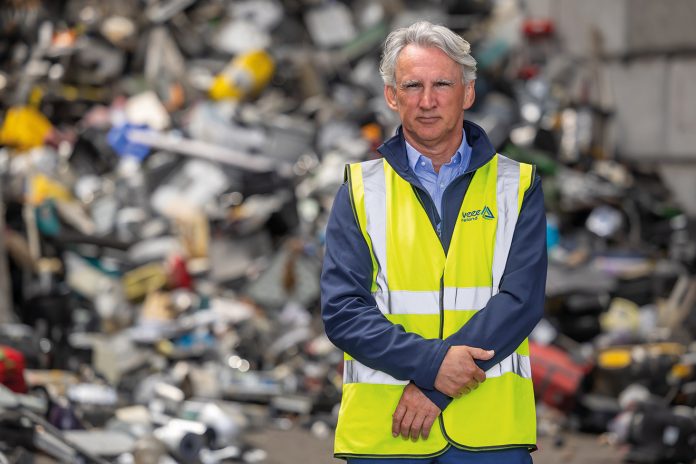WEEE Ireland (Waste, Electrical and Electronic Equipment) is a not-for-profit organisation, founded by producers of electrical and electronic appliances to help them comply with the legal obligations imposed by the EU Battery Directive 2006/66/EC and WEEE Directive 2012/19/EU. WEEE Ireland manages the collection of household e-waste, lighting and batteries from authorised collection points for recycling, on behalf of its over 1,300 producer members.
The non-profit organisation is a member of EUCOBAT, the European association that ensures the collection and recycling of waste batteries in the EU. “WEEE Ireland is delighted to see the new EU battery regulations published. We look forward to continuing our support of their implementation for proper environmental management of batteries, alongside our fellow Eucobat Members,” commented Leo Donovan, CEO of WEEE Ireland.
The new EU battery regulation is part of The European Green Deal and establishes a comprehensive legal framework for all types of batteries across their entire lifecycle within the European Union. It focuses on creating a circular economy for battery minerals in Europe and improves the safety and performance of batteries. The final document was published last January and is expected to enter into force at the beginning of this summer, with transition periods between 12 and 36 months for most requirements.
EUCOBAT has released a statement to welcome and comment on the most significant changes established by the new regulations:
Enabling sustainable development
The Regulations contribute to the objectives of the EU Green Deal with its focus on circularity and the whole battery lifecycle.
New categories adapted to the market
The Regulation has now introduced new categories, such as batteries used in Light Means of Transport (LMT) and for Electric Vehicles (EV). They will ensure clarity and facilitate appropriate waste management processes.
Economic operator responsibilities
The retained definition of producers in the Regulation brings clarity to the responsibilities of economic operators within the industry.
Ambitious collection goals
The establishment of ambitious collection targets for waste portable batteries and LMT batteries is crucial for achieving raw material circularity and reducing European dependencies on third countries.
Adaptive market measures
The Regulation takes market developments and technological advancements, such as longer lifespans of LMT and portable batteries, into account, by empowering the European Commission (EC) to amend the methodology to calculate the collection rate of waste batteries based on the volumes available for collection.
Enhanced information and clarity
The introduction of labelling and information requirements, including carbon footprint declarations, labels for EV batteries, LMT batteries, rechargeable industrial batteries with a capacity exceeding 2kWh, as well as an electronic battery passport and QR code, will provide easy access to information to make better-informed choices.
Full statement available at www.eucobat.eu











